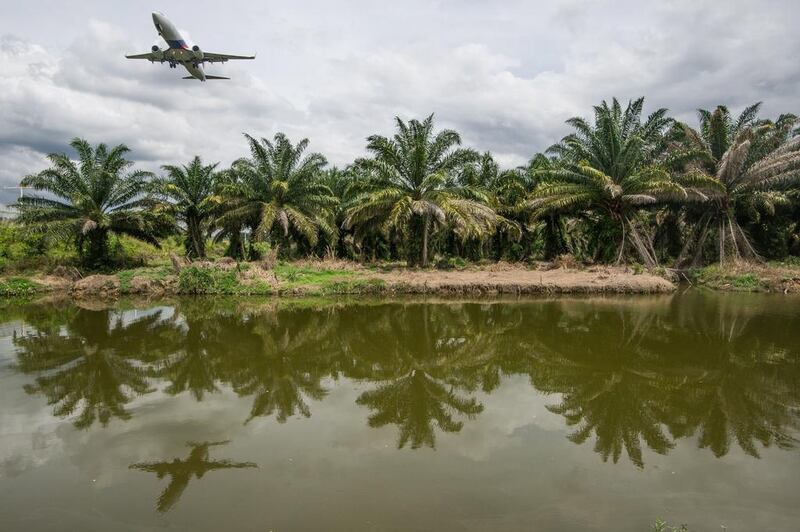Malaysia Airlines, which lost a wide-body jet with 239 people aboard three years ago in one of history’s most enduring aviation mysteries, has become the first airline to sign an agreement for space-based flight tracking of its aircraft.
Malaysia Airlines reached a deal with Aireon, Sitoanair and FlightAware to enable it to monitor the flight paths of its aircraft anywhere in the world including over the polar regions and the most remote oceans, according to an emailed press release from Aireon.
Aireon is launching a new satellite network with Iridium Communications that will allow it to monitor air traffic around the globe. It is projected to be completed in 2018. Most international flights are already transmitting their position with technology known as ADS-B and the signals can be tracked from the ground or space. The US federal aviation administration has already installed a ground-based tracking system for ADS-B.
“Real-time global aircraft tracking has long been a goal of the aviation community,” said the Malaysia Airlines chief operating officer Izham Ismail. “We are proud to be the first airline to adopt this solution.”
Malaysia Airlines Flight 370 was on a flight from Kuala Lumpur to Beijing on March 8, 2014, when it turned around, flew back across Malaysia and then turned toward the remote reaches of the southern Indian Ocean. While debris from the plane has been found washed ashore on African beaches, the main wreckage was never located despite years of searching.
Whether the Aireon tracking system would have made a difference in Flight 370 is not clear. The plane’s location transmitter went dead, possibly because it was intentionally shut off, and the aircraft would not have been visible to the satellite network.
Aireon is one of several companies trying to make it easier to find missing aircraft. Inmarsat, which runs a satellite network that competes with Iridium, offers a separate service for airlines that uses traditional communication systems instead of the ADS-B transmissions. Rockwell Collins’ Airinc offers a similar service to carriers.
* Bloomberg
business@thenational.ae
Follow The National's Business section on Twitter





